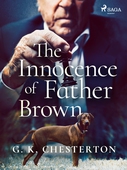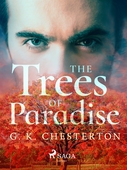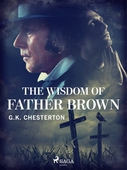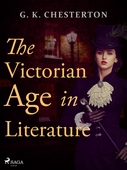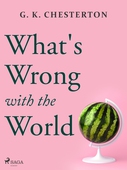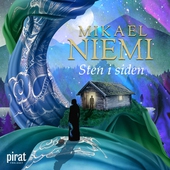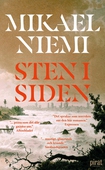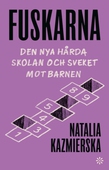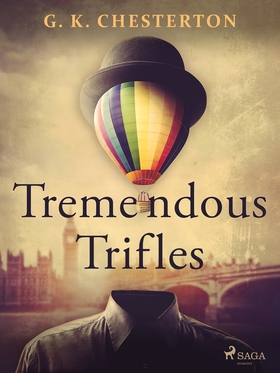
Lägg till önskelistan
Tremendous Trifles e-bok
Pris
45 kr
From satires of Sherlock Holmes to lectures in defence of fairy tales, this collection of essays brings to life the smallest of trifles and turns them into debates on the meaning of life itself.
G. K. Chesterton was one of the most prolific writers of the 20th century and produced a treasure trove of over four thousand essays. Of these, ‘Tremendous Trifles’ selects thirty-nine gems of good advice, fantastical storytelling, and philosophical ponderings to delight the reader.
Including ‘The ...
E-Bok
45 kr
Pris
Förlag
Saga Egmont
Utgiven
13 December 2022
Längd
100 sidor
Genrer
Essäer, Skönlitteratur
Språk
English
Format
epub
Kopieringsskydd
Vattenmärkt
ISBN
9788726992595
From satires of Sherlock Holmes to lectures in defence of fairy tales, this collection of essays brings to life the smallest of trifles and turns them into debates on the meaning of life itself.
G. K. Chesterton was one of the most prolific writers of the 20th century and produced a treasure trove of over four thousand essays. Of these, ‘Tremendous Trifles’ selects thirty-nine gems of good advice, fantastical storytelling, and philosophical ponderings to delight the reader.
Including ‘The Dragon’s Grandmother’, ‘A Tragedy of Twopence’, and ‘The Shop of Ghosts’, this work brings together the best of classic Chesterton that will continue to amuse and outwit readers right up to the modern-day.
Gilbert Keith Chesterton (1874 – 1936) was an English writer, journalist, philosopher, and literary critic. An unparalleled essayist, he produced over four thousand essays during his lifetime, alongside eighty novels and two hundred short stories.
Tackling topics of politics, history, philosophy, and theology with tenacious wit and humour, G. K. Chesterton was often considered a master of the paradox. Himself both a modernist and devout Catholic, he is remembered best for his priest-detective short stories ‘Father Brown’, and his metaphysical thriller ‘The Man Who Was Thursday’.
In his lifetime, Chesterton befriended and debated some of the greatest thinkers of the age, such as George Bernard Shore, H. G. Wells, and Bertrand Russell, while his works went on to inspire figures including T. S. Eliot, Michael Collins, and Mahatma Gandhi.

